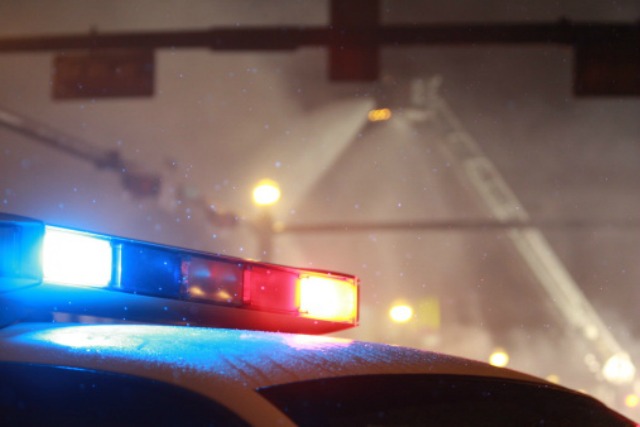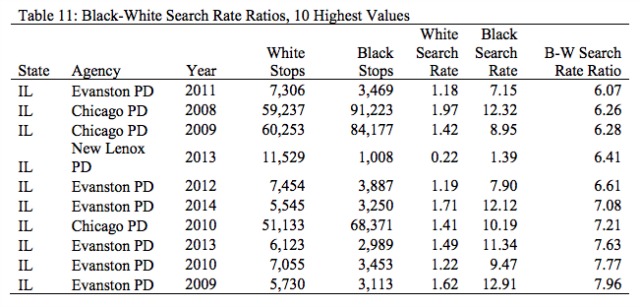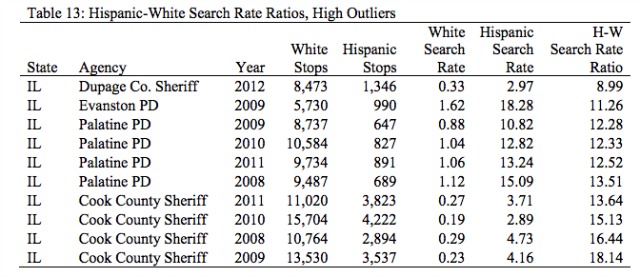Chicago Area Police Rank Among Worst In Racial Disparity In Traffic Searches: Study
By Stephen Gossett in News on Mar 3, 2017 4:38PM

Getty Images / Photo: Brad Thompson
Black and Hispanic drivers were searched during traffic stops at rates disproportionately higher in Cook County police departments and the Evanston police departments than they were in other agencies, according to a recent analysis of traffic stops.
Four departments—the Palatine Police Department, the Cook County Sheriff’s Department, the Evanston Police Department and the Chicago Police Department—fared particularly poorly in a study that looked at the rates by which traffic stops lead to searches.
The study is based on 55 million stops that were conducted by more than 130 law enforcement agencies in 16 states—8 states that legally require departments to publish traffic-stop data and eight that, at least intermittently, do so voluntarily. Illinois passed a law in 2003 that required a study of traffic stops to identify racial bias.
Among the departments studied, researchers found that, between 2008 and 2011, Chicago area departments represented the ten most disproportionate outliers in terms on black-to-white search ratios. In 2009 in Evanston, for example, black motorists were searched nearly eight times as often as white drivers.
"Illinois police agencies appear to have highly targeted practices of searching minorities," the researchers wrote.

"Racial Disparities in Traffic Stop Outcomes"
Area law enforcement agencies fared even worse in terms of how often Hispanic drivers were searched during stops compared to white drivers, particularly the Palatine Police Department and the Cook County Sheriff. The sharpest outlier in that data set was the Sheriff in 2009, when Hispanics were searched 18 times more often than white drivers.

"Racial Disparities in Traffic Stop Outcomes"
Researchers wrote that a combination of citizen's ability to document stops, increased use of dashcams and bodycams in police departments, and greater access to databases of police traffic stops were nonetheless signs of progress.
"Our current focus on race and justice is all too familiar, but this most recent surge in attention to these issues offers perhaps a special promise of progress because our abilities to document citizen interactions with police have never been better," they wrote.
[H/T Injustice Watch]